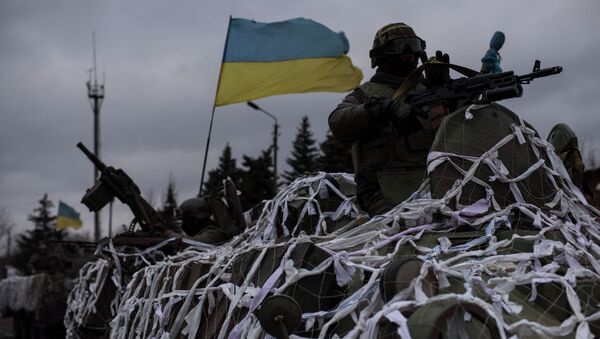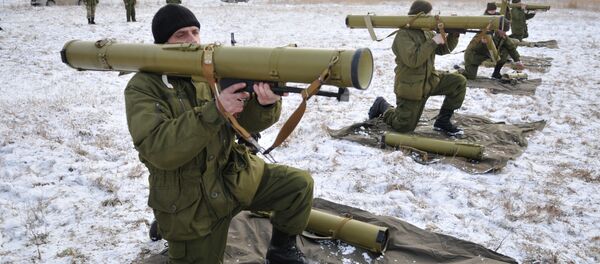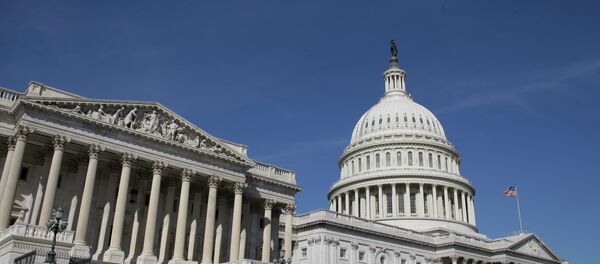MOSCOW (Sputnik), Daria Chernyshova — Washington could play a destructive role in the recently agreed reconciliation deal on Ukraine, as it prepares to train the Ukrainian army and has always advocated deliveries of more weapons to the crisis-hit country, experts told Sputnik news agency Thursday.
Earlier in the day, the leaders of Ukraine, Germany, Russia, and France worked out a reconciliation deal outlining 13 points aimed at ending the military confrontation between Kiev forces and independence supporters in eastern Ukraine. Patrick L. Smith, the author of “Time No Longer: Americans After the American Century” stressed that Washington may try to influence Kiev, which would have a destructive effect on the reconciliation efforts.
He also stressed that this all comes amid US plans to train the Ukrainian military and attempts to send lethal military equipment to Ukraine, a move largely opposed in Europe.
“We [the United States] are now scheduling battalion of trainers to arrive in March. It might disrupt the process that the Europeans are trying very hard now to advance,” Smith added.
Political analyst Jon Hellevig reminded that the sanctions introduced against Russia were engineered by the United Sates, but “were never in reality connected with the Ukrainian crisis, which only served as a pretext to get at Russia.”
“I would not think that the USA has now changed its position. They want to continue squeezing on Russia, but might be forced in view of the European activities to bid a tactical retreat from the hardline position,” Hellevig told Sputnik.
Right after the 13-point reconciliation deal was agreed, the International Monetary Fund said it had reached a preliminary agreement with Kiev on an extended bond facility of $17.5 billion for a four-year-program to help Ukraine recover from the economic crisis.
“In this sense, Poroshenko has done what the leadership in Kiev is really good at – he accepted a bribe. These two things I think pushed him to the table,” Smith said, commenting about the IMF help binding Ukraine to implement unpopular social measures.
Jon Hellevig agreed and underlined that with economy in tatters, the IMF package notwithstanding, “the government will not have a possibility to actually take on the social commitments to the Donbas people that are a part of the agreement.”
The Minsk deal includes an unconditional ceasefire coming into force at midnight on February 14-15, urges Kiev to undertake constitutional reform with a focus on Ukraine’s decentralization, as well as stipulates the withdrawal of all foreign armed groups, equipment and mercenaries from Eastern Ukraine under the observation of the OSCE.




